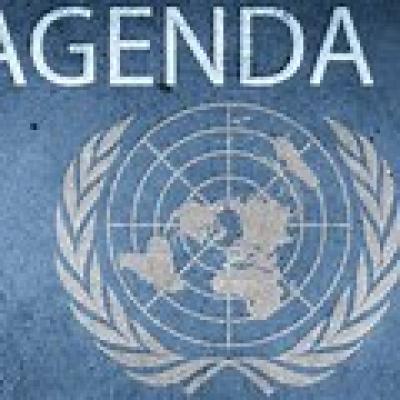Little-known foreign formula is nation’s policy backbone
United Nations Agenda 30 is the political blueprint for New Zealand. It is the operational master plan for the much better known climate change programme and its multitude of associated ideological objectives
According to the New Zealand Institute of Economic Research the poorest households are likely to be disproportionately hurt by climate change regulations with the poorest 40 percent enduring six times the harm of the richest 20 percent..
Agenda 30 has the unquestioning support of the Labour Government and its satellite parliamentary Green Party. They view the agenda as the overriding passport to winning elections.
The same report by the long-established Institute of Economic Research considers the aggressive targeting of the nation’s agricultural sector will cause production to shift overseas and with no subsequent impact on global emissions.
The general public is unaware of Agenda 30 and its stern implications for New Zealand because the nation’s mainstream media zealously approves of any and all United Nations doctrines.
Agenda 30 was propounded by United Nations as a consolidation of its climate change campaign and with the intention of binding in countries such as New Zealand known to have an intellectual class particularly prone to ideology.
After a succession of episodes in places such as Rwanda and the Balkans in which United Nations was responsible for immense loss of life due to its inability to implement its promise to use military intervention to save them, the UN knew it had to find another reason to exist.
This was the beginning of its climate strategy and all the contrived crises and extinctions that have been its hallmarks and all duly propagated by a complicit media. This in spite of the UN even after being told by Taiwan of the imminent Covid epidemic, an authentic crisis, failed to do anything about the genuine version until it was too late.
Agenda 30 is the ticking political booby trap of our epoch. If anyone challenges it and seeks to dismantle it they get blown up. This is why the National Party opposition from time to time applies a delicate stethoscope to it. But that is all. Similarly with the ACT Party which also refuse to challenge the foreign doctrine being imposed on New Zealand and at such cost.
The National Party and ACT understand the ferocity in their upper income urban electorates of the intelligentsia response should they demean climatism as an article of faith.
New Zealand is considered to contribute somewhere between 0.02 and 0.17 of greenhouse gases. Yet New Zealand is used by United Nations as the showcase for its Agenda 30 which uses climate change ideology as its nosecone.
Economists point out that the government’s crash scheme to force the population into electric cars will most harm the poorer people who cannot afford them.
The success of United Nations in imposing Agenda 30 on New Zealand is that throughout the actual, the real crises of recent years, notably the homeless emergency and Covid 19 that the UN has succeeded in keeping Agenda 30 at the head of the to-do list and the overriding priority here.
This is the reason for routine government proclamations about the climate “emergency” and doing so when there have been seismic indications of another real potential emergency. But earthquakes for example are not a current preoccupation of activists under the spell of United Nations. .
The success of United Nations in inspiring unquestioning faith is so evident now in the absence of anyone daring to ask about its role in Myanmar. Burma as Myanmar is now known was an early member country of United Nations.
United Nations is often described as a vast bureaucracy and those involved with it will cheerfully go along with this admitting to privileged lifestyles and generous travelling allowances. They know though that in its new field of high profile ethical posturing it is ruthlessly efficient.
United Nations embedded intelligence channels are often far more effective than those of its nation state members. These networks allow it to accurately gauge the mood of these member countries in going along with its Agenda 30.
It knows that in its fervent adherence to Agenda 30 the New Zealand government can safely order the switching off for example of the nation’s natural gas which is one of the chief resources behind its economy.
Contrived self-harming the UN knows will be outweighed by the ability of activists to portray it in heroic terms, and as a tiny sacrifice to be endured in exchange for the approval of United Nations.
As a bureaucracy the United Nations own priority is to remain one, a bigger one, and this allows it to behave in a sovereign manner. When the government announced the end of oil exploration and did so to a university student gathering the power of United Nations to implement Agenda 30 via this sovereign influence takes on a tangible form.
.When it bailed out of effective peacekeeping United Nations turned to the environment and did so with a strategy designed to convey the impression that nothing much was done to save it before the UN arrived on the scene. This was wildly successful in New Zealand, in spite of its existing and much promoted clean green branding.

